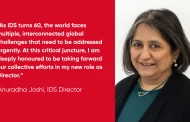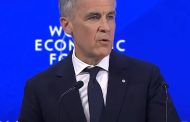Is it too early to concede that President Bola Tinubu gets it right each time he steps out in representational practice of power? His language game is usually so well put that no platform that seeks to celebrate exceptionalism and denigrate Liliputianism and mediocrity at all costs can ignore it.
Intervention recalls the first noticeable outing was when he said mid-November, 2023 that “Nigeria is the candle of hope that will light the way for Africa. And once Africa is illuminated, the world will be a brighter place for all of humanity”. Although Nigeria has thereafter been facing foreign policy challenges, particularly at the level of ECOWAS, that is still an enviable shot in signification for which the president should not be denied the credit. Such statements will continue to be important, given that meaning is never a stable commodity.
This time, it is the president rejecting what he calls “labelling and blanket stereotyping of Nigeria as a country with the prevalence of cybercrime and other forms of corrupt practices”. It was at an EFCC Public Engagement on Youth, Religion, and the Fight Against Corruption in Abuja.
There are three particularly interesting sentences in the NAN report of the event. One is where the president said “the stereotyping of Nigerians undermined majority of the citizens to maintain the principles of integrity and diligence”
The second is where he declared that “Over the decades, Nigerians have been victims of mis-labelling. Such gross misrepresentation fails to reflect the true essence of our diverse and resilient nation.
The third must be where added that “The association of internet crimes with the entire Nigerian populace lacks statistical evidence and does not align with the sociology of everyday Nigerians.
As Intervention sees it, the reference to the ‘sociology of everyday Nigerians’ performs a strategic function in communication by distinguishing between the few who have been tempted into cybercrime and the great majority who probably have no internet access, not to talk of the technological suavity to engage with the internet.
Yet, the mastermind behind the power game involved in the blanket labelling would never make reference to this great digital divide just because it serves their purpose to denigrate Nigeria in the service of their agenda.
So, what is so significant in the president saying so?
The first importance in his saying so is that Nigeria is basically sending out the message that it is aware that the labelling is not an innocent use of words but a strategic entry point into the politics of containing Nigeria in the service of the current global hierarchy. Sending this message every now and then is crucial.
Second, it is a rejection of the tactics of homogenising Nigeria which is a privileged tactic in representational politics. Third, a sitting president saying so carries its own significance.
Lastly, it provides one more empirical instance of the contention that words are constitutive of power because the rejection of the labelling is another way of saying that if Nigeria is not at alert, one meaning of it (hub of cybercrime) can be elevated over and above all the different re-inscriptions of it (decent and innovative citizens, Africa’s most populous country, important oil producer, etc). As nothing acquires meaning outside of its signification, the blanket labelling could quickly overshadow all other references to Nigeria and help those behind the labelling achieve their agenda.
Intervention is keen on keeping what could emerge as an oasis of excellence in discursive power in the Tinubu Presidency under watch.




























